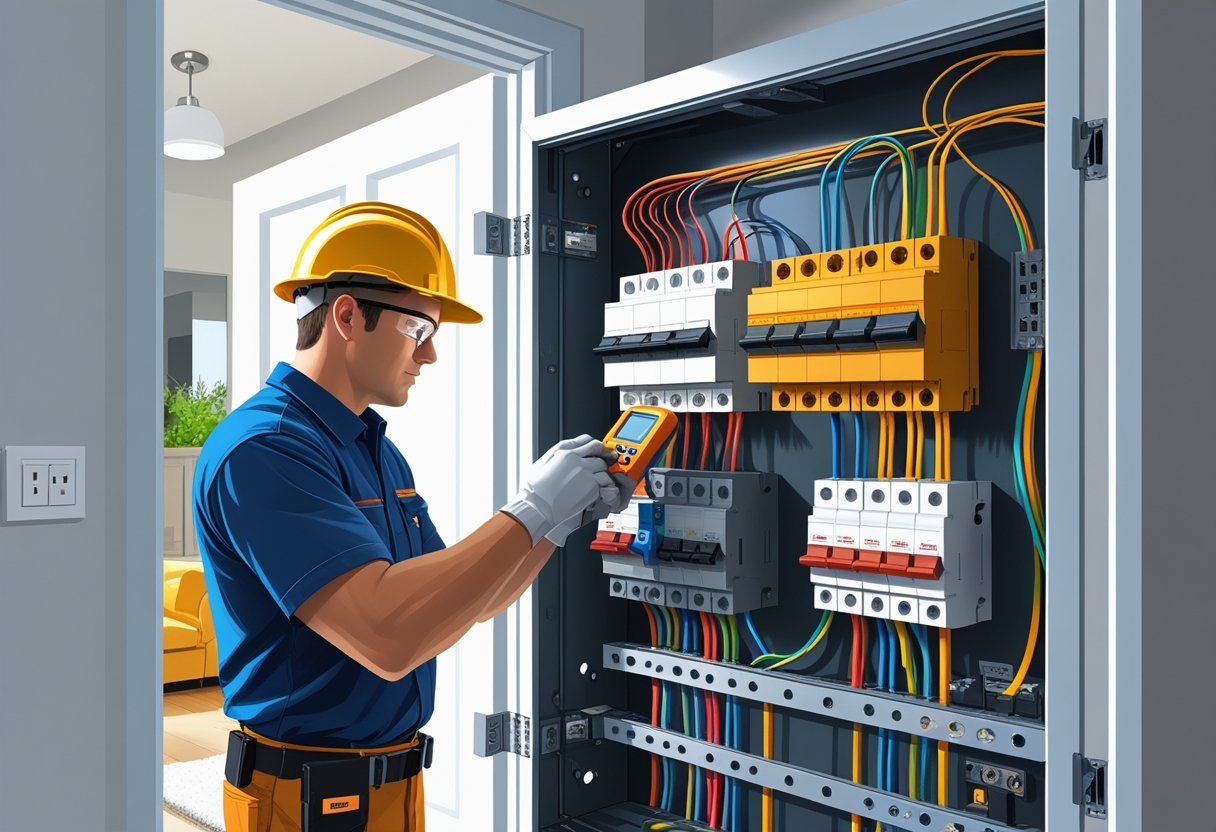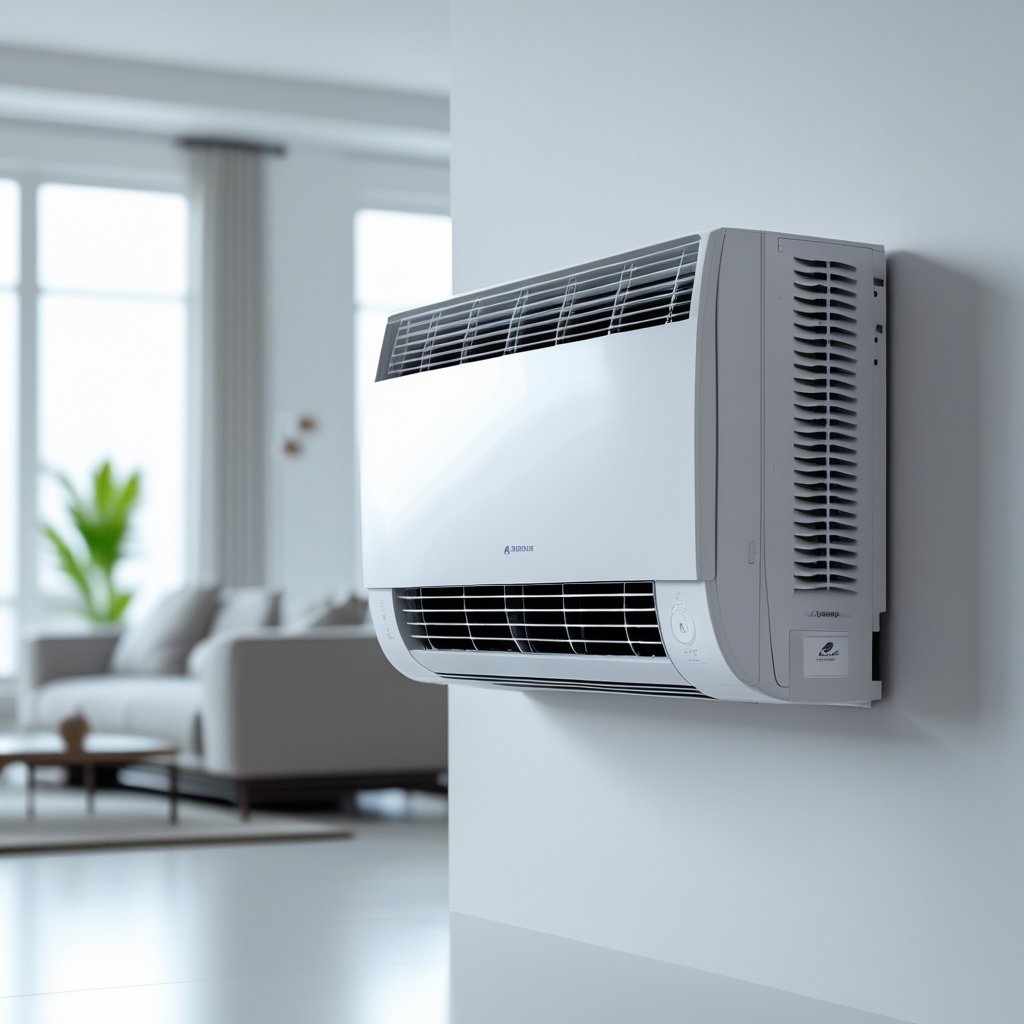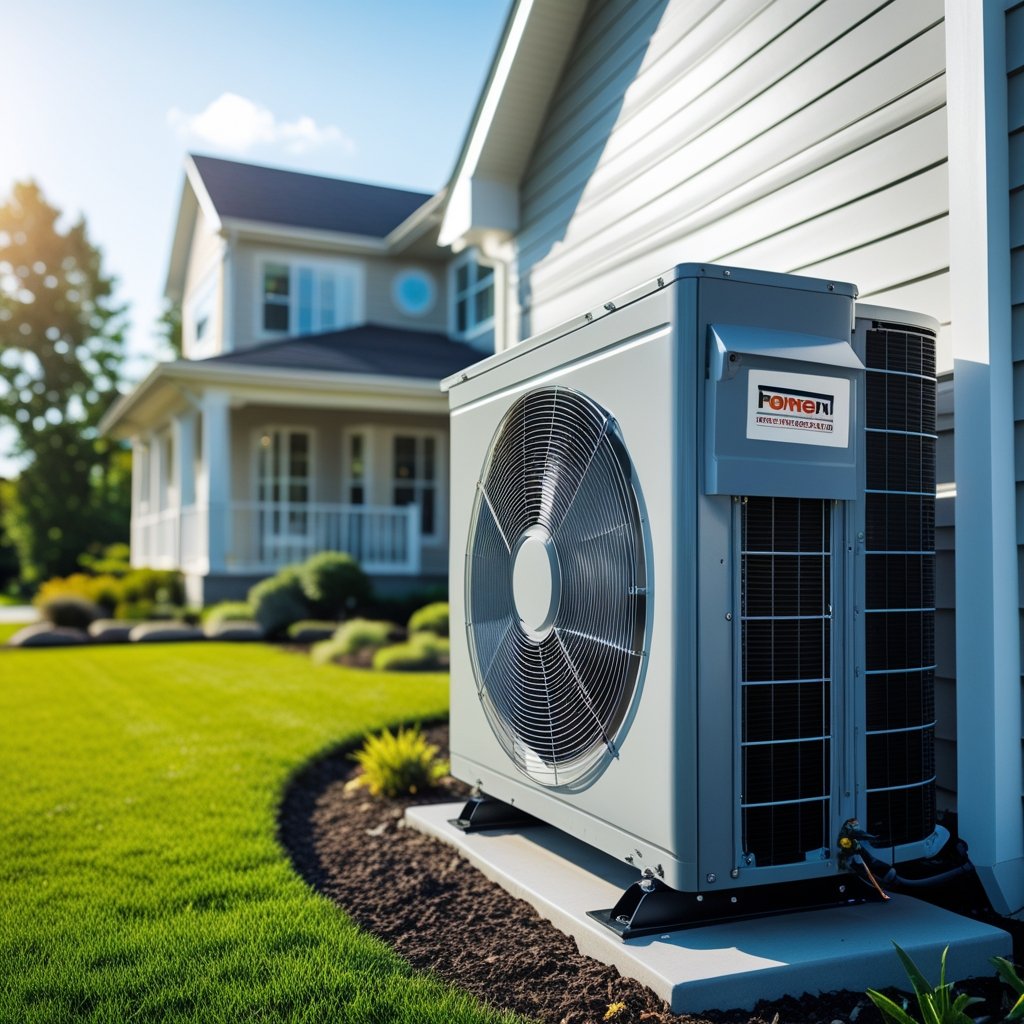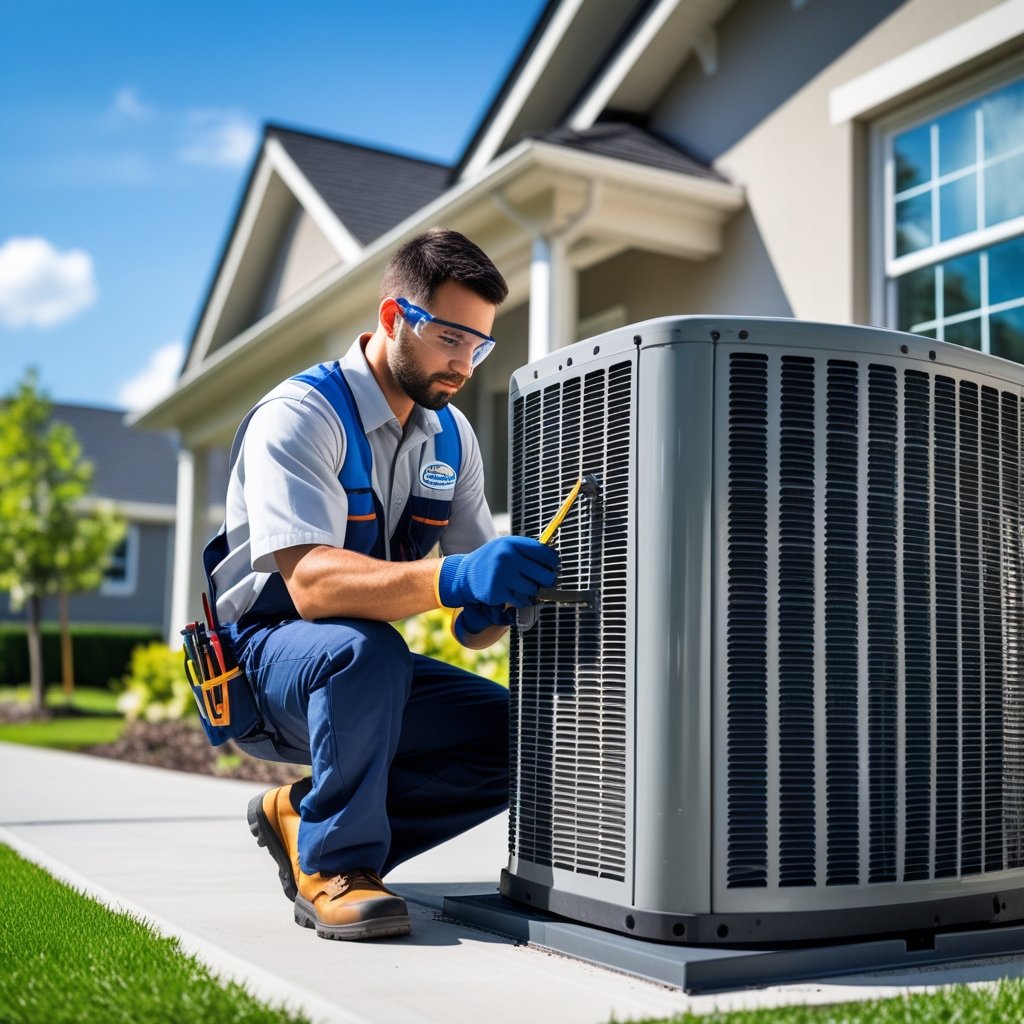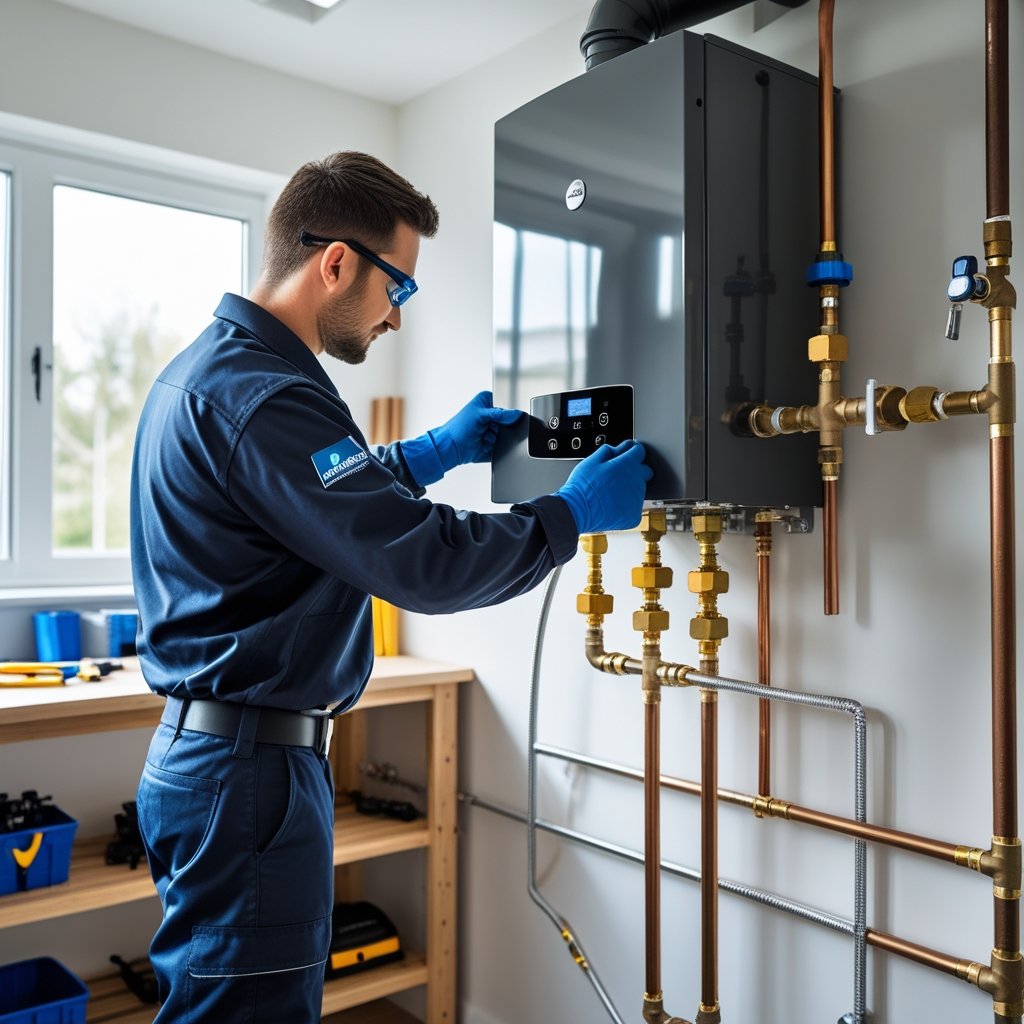A whole home electrical inspection is essential for ensuring the safety and reliability of your electrical systems. This comprehensive evaluation identifies potential hazards, code violations, and needed repairs, ultimately providing you with peace of mind. Understanding the current condition of your home’s electrical system can prevent accidents and costly repairs down the line.
When you engage professionals like Leo Kob Co., you benefit from their extensive expertise and family-owned commitment to quality service. A thorough inspection will highlight areas that require attention, helping you maintain a safe environment for your family. Regular inspections also comply with safety codes and regulations, ensuring your home’s electrical setup is up to standard.
Investing in a whole home electrical inspection means safeguarding your property and your loved ones. By prioritizing this necessary assessment, you can ensure long-term safety and efficiency in your home’s electrical use.
What Is a Whole Home Electrical Inspection?
A whole home electrical inspection is a thorough assessment of your property's electrical system. It addresses safety concerns, compliance with current codes, and the overall condition of your electrical infrastructure. This inspection is crucial for maintaining a safe environment in your home.
Purpose and Scope
The primary purpose of a whole home electrical inspection is to identify potential hazards before they cause significant issues. Qualified electricians will examine all aspects of your electrical system, including wiring, outlets, and the main panel. They will look for outdated systems, damaged components, and code violations.
This type of inspection covers outdoor wiring, grounding systems, and surge protection. Additionally, it assesses the placement and functionality of smoke and carbon monoxide detectors. Addressing any concerns found during the inspection can enhance your home's safety and efficiency.
Differences From Standard Home Inspections
A standard home inspection provides a broad overview of a property's condition, covering various systems such as plumbing, roofing, and HVAC. In contrast, a whole home electrical inspection focuses specifically on the electrical components.
While standard inspections may highlight obvious electrical issues, they typically do not delve into the intricate details. A certified electrician performing a thorough electrical safety inspection can identify subtle issues that a general inspector might miss. This specialized focus ensures that all potential dangers relating to your electrical system are properly evaluated.
When to Schedule an Inspection
You should consider scheduling a whole home electrical inspection if you are purchasing a new home or planning extensive renovations. Homes older than 25 years are more likely to have outdated wiring or components that require attention.
Additionally, if you experience frequent circuit breaker trips, flickering lights, or burning smells from outlets, an inspection is essential. Regular inspections can help prevent costly repairs and ensure that your electrical system remains safe and efficient. Leo Kob Co. is dedicated to providing quality electrical inspections, keeping your home safe for you and your family.
Key Elements of the Electrical Inspection Process
A thorough electrical inspection covers several critical areas within your home. Understanding these key components ensures safety and compliance with current standards. This inspection involves evaluating electrical panels, wiring, outlets, and safety devices for optimal performance.
Electrical Panels and Circuit Breakers
Your electrical panel, often referred to as the breaker box, is essential for controlling the flow of electricity throughout your home. Inspectors will check for signs of damage and ensure that the panel is not overloaded. They will assess the circuit breakers to confirm they are functioning correctly and compatible with the overall electrical system.
Look for rust, burn marks, or unusual noises, as these can indicate potential hazards. The inspector will also verify proper labeling of circuits for easy identification. Regular inspections by professionals like Leo Kob Co. can help maintain your panel’s efficiency and longevity.
Wiring and Electrical Components
Wiring is a crucial component of your electrical system that must meet safety codes. An inspector will examine the wiring's condition, ensuring it is not frayed, outdated, or overloaded. They will focus on identifying any areas where electrical components may pose a risk of short circuits or fires.
Insulating materials need to be intact, and connections must be secure. Properly installed wiring can prevent serious issues, including electrocution. Any concerns found will necessitate immediate attention to maintain a safe living environment.
Outlets, Switches, and Electrical Boxes
Electrical outlets and switches are fundamental for everyday use. Inspectors check each outlet for proper grounding and functionality, ensuring there are no exposed wires or damaged covers. They will also assess the location of outlets to ensure they meet safety regulations, particularly in areas like kitchens and bathrooms.
Electrical boxes must be properly installed to accommodate wiring connections safely. Inspections also ensure that GFCI outlets are present in wet areas, providing extra safety against electrical shock. Finding and fixing issues early can prevent costly repairs down the line.
Safety Devices and Surge Protection
Safety devices are vital components of your electrical system. Inspectors will examine smoke detectors, carbon monoxide detectors, and surge protectors. Ensuring these devices are operational diminishes risks posed by fire or electrical surges.
Surge protectors shield your appliances from voltage spikes. The inspector will confirm that they are correctly installed and functioning. Installing reliable safety devices minimizes dangers in your household and ensures peace of mind. Regular inspections by a qualified service provider, such as Leo Kob Co., help guarantee these systems remain up to date.
Common Electrical Issues Uncovered During Inspection
During a whole home electrical inspection, several key issues commonly arise that can compromise safety and functionality. Identifying these problems is essential for ensuring your home's electrical system meets safety standards and operates efficiently.
Outdated or Faulty Wiring
Outdated wiring is a frequent concern in many homes, especially those built before the 1960s. Systems may still use outdated materials, such as knob-and-tube or aluminum wiring, which poses significant risks.
Faulty wiring can lead to interrupted power flow and even electrical fires. If you notice flickering lights or outlets that aren't functioning, it may indicate deeper wiring issues. When you schedule an inspection with Leo Kob Co., our technicians will assess the wiring system and recommend necessary upgrades to keep your home safe.
Overloaded Circuits and Electrical Hazards
Overloaded circuits are another common issue found during inspections. When too many devices are plugged into a single outlet or circuit, it increases the risk of overheating and potential electrical fires. Common warning signs include frequent tripped breakers or burning smells coming from outlets.
To prevent hazards, ensure that your home’s electrical load is balanced. Our experts can help reconfigure circuits or recommend new installations to distribute power more effectively. Consulting with Leo Kob Co. allows homeowners to maintain peace of mind about their electrical systems.
Warning Signs and Potential Hazards
You should always be vigilant for warning signs indicating potential electrical hazards. Exposed wiring, for instance, can create severe safety risks, including shocking hazards and fires.
Other red flags include persistent buzzing noises from outlets or switches and unusual fluctuations in power. It's crucial to address these concerns quickly to avert possible disasters. Having a qualified technician inspect your electrical systems regularly helps detect these issues early and ensures safe operation throughout your home.
Inspection Standards and Legal Requirements
Understanding the standards and legal requirements for electrical inspections is crucial for ensuring safety and compliance in your home. Adhering to these protocols helps prevent hazards and maintain the integrity of your electrical systems. This section discusses the standards set by national and local codes, the importance of code compliance inspections, and the role of licensed professionals in the process.
National and Local Electrical Codes
The National Electrical Code (NEC) sets the foundation for electrical safety standards across the United States. It outlines requirements for wiring, circuit protection, and grounding to minimize the risk of electrical hazards. Local jurisdictions may have additional regulations that adapt or expand on the NEC, considering regional needs and safety concerns.
It’s essential to familiarize yourself with the specific codes applicable in your area. Compliance with these codes ensures that the electrical systems in your home are safe and function efficiently, mitigating risks such as electrical fires or equipment damage.
Code Compliance Inspection
A code compliance inspection involves a detailed evaluation of your home’s electrical systems against established standards. This inspection focuses on identifying any non-compliance issues that could present safety risks. It typically includes checking wiring, circuit breakers, outlets, and grounding systems.
During this process, the inspector will provide a report highlighting any concerns or required repairs. This step is vital not only for your safety but also for maintaining property value. Engaging a professional can also help in understanding the nuances of the regulations and ensure that any necessary adjustments are made.
Role of Licensed Electricians and Inspectors
Licensed electricians and electrical inspectors play a pivotal role in your home’s safety. They are trained to identify potential hazards and verify compliance with all applicable codes and standards. A licensed electrician will conduct repairs, upgrades, and installations with a thorough understanding of legal requirements, ensuring that your home is safe and compliant.
Inspectors, often associated with local building departments, may perform periodic inspections to confirm adherence to safety standards. Their expertise allows them to conduct assessments such as infrared inspections, which detect issues not visible to the naked eye. By working with licensed professionals, you can secure peace of mind about the safety and legality of your electrical systems.
For further assistance with electrical inspections, consider reaching out to industry leaders like Leo Kob Co. to ensure your home meets all safety standards.
Benefits and Costs of a Whole Home Electrical Inspection
A whole home electrical inspection provides essential insights into the electrical systems in your property. This process ensures safety, compliance with codes, and an understanding of ongoing electrical needs. It also influences future resale value and insurance considerations.
Home Safety and Fire Prevention
Electrical systems are vital for home safety. A thorough electrical inspection identifies potential hazards, such as faulty wiring or outdated panels, which could lead to fires. By addressing these issues proactively, you mitigate risks to your home and family.
During an inspection, electricians assess the condition of your wiring, grounding, and circuit breakers. They ensure that everything meets current safety standards. Investing in regular inspections not only protects your loved ones but also enhances peace of mind, knowing your home is safe. In South Central Pennsylvania, consider a trusted provider like Leo Kob Co. to help keep your electrical system secure.
Resale Value and Insurance Considerations
An electrical inspection can significantly impact your home's resale value. Potential buyers often seek properties with verified safety and functionality of electrical systems. By demonstrating that your home has been inspected and any necessary repairs completed, you can command a higher price.
Additionally, some insurance companies may offer discounts on premiums for homes with updated electrical systems. A valid inspection report can streamline the process of obtaining insurance coverage and ensure you meet any policy requirements. A thorough inspection can be a key selling point when listing your home.
Understanding Inspection Cost
The cost of a whole home electrical inspection typically ranges from $100 to $400, depending on various factors like home size and location. Many homeowners spend about $155 for an average inspection. A detailed report will be provided, listing necessary repairs and updates, which can help you prioritize electrical work.
Understanding these costs upfront allows you to budget effectively, avoiding unexpected expenses later. For comprehensive services in South Central Pennsylvania, consider reaching out to Leo Kob Co. for quality electrical inspection tailored to your specific needs.
Frequently Asked Questions
Understanding the nuances of home electrical inspections can help you ensure the safety and efficiency of your electrical systems. Here are some common queries homeowners have regarding this essential process.
What are the common reasons for failing a home electrical inspection?
Failing a home electrical inspection often results from outdated wiring, overloaded circuits, or improper grounding. Other frequent causes include malfunctioning outlets, inadequate smoke detectors, or non-compliance with current electrical codes. Addressing these issues promptly can help avoid safety hazards.
How can I find a reputable electrical inspector in my area?
To find a reputable electrical inspector, start by asking for recommendations from friends or family who have had inspections done recently. You can also check online reviews, local business directories, or associations that license inspectors. Consider companies like Leo Kob Co., known for their integrity and professionalism in electrical services.
Is it possible to get a free home electrical inspection, and under what circumstances?
Free home electrical inspections are typically offered by local utilities or during special promotions by contractors. These inspections may be part of an energy efficiency program aimed at identifying potential savings or safety hazards. Always verify the credentials of the inspector offering the service.
What is the average cost of a professional home electrical inspection?
The average cost of a professional home electrical inspection ranges from $100 to $350, depending on the size of your home and the complexity of the inspection. Larger homes may incur higher fees based on the extent of the electrical system being evaluated.
What items are typically included in a home electrical inspection checklist?
A typical home electrical inspection checklist includes examining the service panel, circuit breakers, wiring, outlets, and light fixtures. Inspectors will also check for proper grounding and bonding, as well as any signs of wear or damage to electrical components.
How often should a home undergo a comprehensive electrical inspection?
A home should typically undergo a comprehensive electrical inspection every 3 to 5 years. Homes that are older or have undergone significant renovations may require more frequent inspections to ensure safety and compliance with current codes. Regular check-ups can help maintain electrical integrity and prevent major issues.

